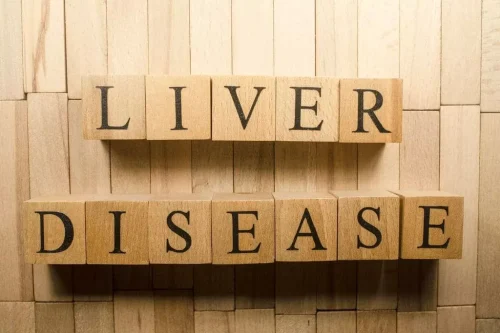
However, some people develop allergy-like symptoms, such as an itchy throat and nasal congestion, in response to the sulfites in wine. Some signs of anaphylaxis include swelling, itching, tightening of the throat and mouth, a weak or rapid pulse, fainting, shock, and loss of consciousness. With the right combination of treatments and therapies, freedom from alcohol addiction and the common complications posed by alcohol intolerance is possible. To learn more about alcohol intolerance and alcohol addiction , contact a Vertava Health treatment specialist today.
Alcohol Use And Addiction Treatment Options
These compounds are often added to beer and wine to limit the growth of yeast and act as a preservative. Common sulfites include potassium bisulfite or potassium metabisulfite. Sulfur dioxide is another closely related chemical that can trigger reactions in some people. You can also get allergy testing to check whether you have a true allergy to alcohol.
Find more top doctors on
Some people don’t have enough of an enzyme called aldehyde dehydrogenase (ALDH). It is an inherited disorder, so it was passed down to you from your parents. People of East Asian descent are more https://ecosoberhouse.com/article/alcohol-relapse-signs-symptoms-stages-stats/ likely to have the inherited genetic mutation that causes alcohol intolerance, so they develop the condition at higher rates. Anyone can have the enzyme problem that causes alcohol intolerance.
Difference from alcohol allergy
It is important to seek specialist advice if your suspect some sort of alcohol intolerance, as alcohol intolerance and alcohol allergy are commonly confused and misdiagnosed. While there is no way to treat this condition, your healthcare provider can talk with you about ways to reduce the negative effects of alcohol intolerance. Alcohol flushing syndrome is a major sign of alcohol intolerance.
Mixing Alcohol With Medications: Why It’s Dangerous
You may be allergic to one of the substances in alcohol (a chemical, grain or preservative, such as sulfite). Dr Yiannis also noted that symptoms might become more pronounced in hot weather and offered advice on how to manage these symptoms to safely enjoy a drink in the summer sun. Newsweek spoke to a doctor to find out what it actually means to be allergic to alcohol and what symptoms you should be looking out for. It is best for people who have gluten intolerance to avoid beer, unless it is gluten-free. One report, which the American Academy of Allergy Asthma & Immunology (AAAAI) cite, found a link between high levels of alcohol use and high IgE levels.
- Those with alcohol intolerance should try to limit or abstain from alcohol consumption entirely.
- Another enzyme, aldehyde dehydrogenase (ALDH), then turns acetaldehyde into non-toxic acetic acid (vinegar).
- Sudden onset of symptoms may also be caused by a newly developed intolerance.
- There are several ways for a doctor to diagnose an alcohol allergy or intolerance, including the approaches below.
- Symptoms of an alcohol allergy include rashes, itchiness, swelling and severe stomach cramps.
- Finally, it examines how alcohol tolerance changes over time and offers support and guidance on alcohol use.
- If you experience any of these symptoms after drinking, talk to your doctor about the best way to move forward.

For example, aged cheese, smoked meats, sauerkraut, wine, and beer tend to be high in histamines. Read beverage labels to see whether they contain ingredients or additives you know cause a reaction, such as sulfites what causes alcohol intolerance or certain grains. Alcohol intolerance occurs when your body doesn’t have the proper enzymes to break down (metabolize) the toxins in alcohol. This is caused by inherited (genetic) traits usually found in Asians.
How is alcohol allergy diagnosed?
- For example, potential symptoms include red and itchy skin, nasal congestion, shortness of breath, abdominal pain, and diarrhea.
- To learn more about alcohol intolerance and alcohol addiction , contact a Vertava Health treatment specialist today.
- This is caused by inherited (genetic) traits most often found in Asians.
It’s worth noting that even if you’re not genetically prone, drinking too much alcohol too quickly can still lead to uncomfortable symptoms¹. A nutrition and genetics specialist has shed light on why a small tipple can leave some feeling as if they’ve had one too many, pointing towards a potential allergy to alcohol. MyHealthChecked is on a mission to get people to pay attention to the signs of alcohol intolerance. A nutrition and genetics expert has explained why some people experience the symptoms of being drunk after just a small amount of alcohol – revealing they could be allergic. MyHealthChecked is encouraging people to recognise the symptoms of alcohol intolerance. Its symptoms are usually more painful and uncomfortable than intolerance symptoms, and in rare cases, if untreated, an alcohol allergy can become life-threatening.

Spotting the signs of an adverse reaction to alcohol
Research suggests this is one of the most common hereditary disorders in the world, affecting 560 million people, or eight percent of the global population. The highest prevalence (35-40 percent) is among in people of East Asian descent. “Analysis and update of the human aldehyde dehydrogenase (ALDH) gene family.” Human Genomics. For severe allergies, avoid the allergen completely, and always carry your EpiPen with you in case of an emergency. You may be more likely to have reactions to alcohol if you have any of these factors. You may also have other symptoms, such as nausea, vomiting, diarrhea, dizziness, heart flutters, and a stuffy or runny nose.
Alcohol Intolerance Vs. Alcohol Allergy
If someone experiences a severe allergic reaction, they should go to the emergency room immediately. If they do not have an epinephrine injection to treat anaphylaxis right away, it could be fatal. An alcohol allergy and alcohol intolerance are two different conditions. The immune system usually produces antibodies to fight harmful substances in the body.


